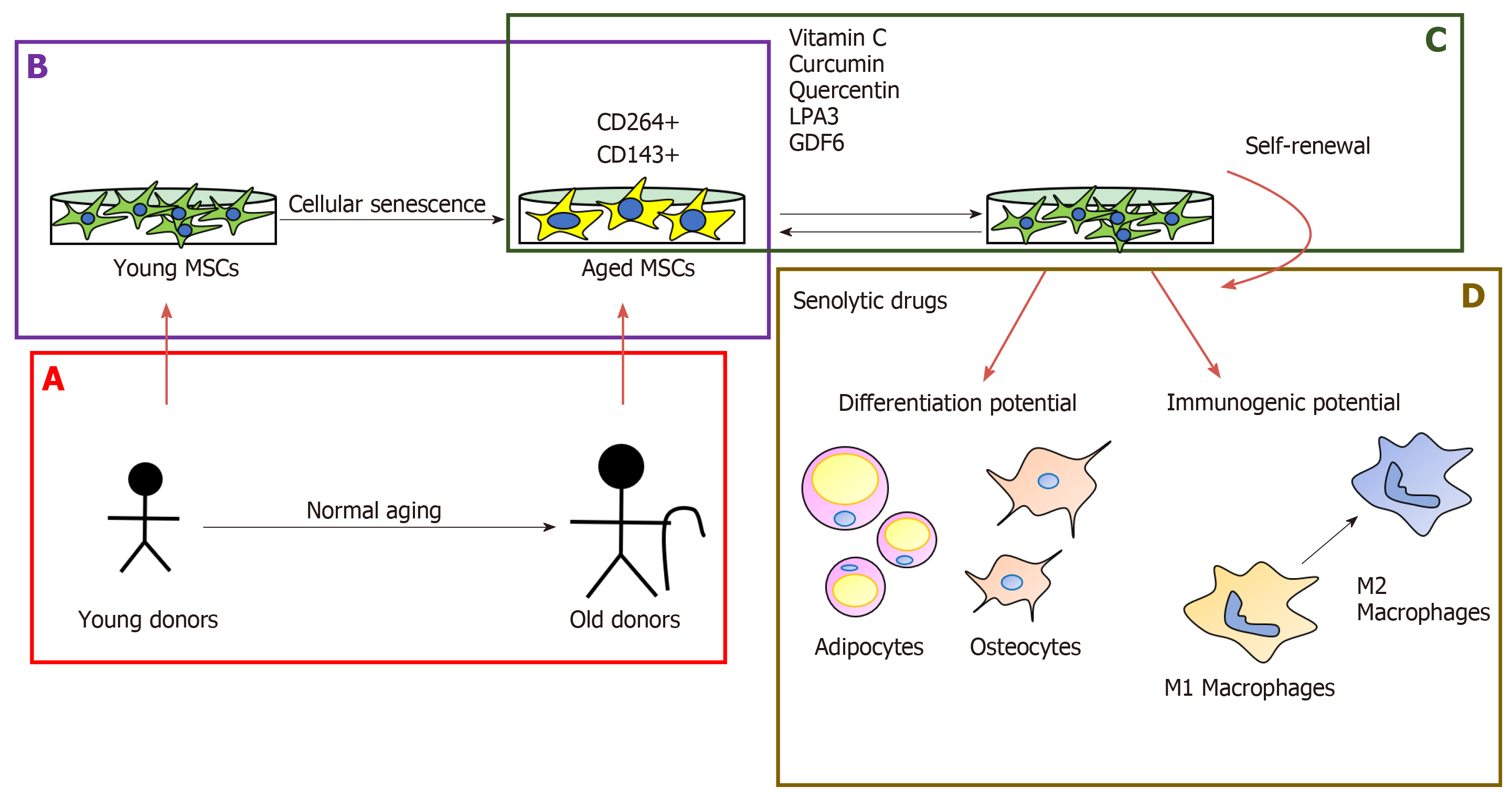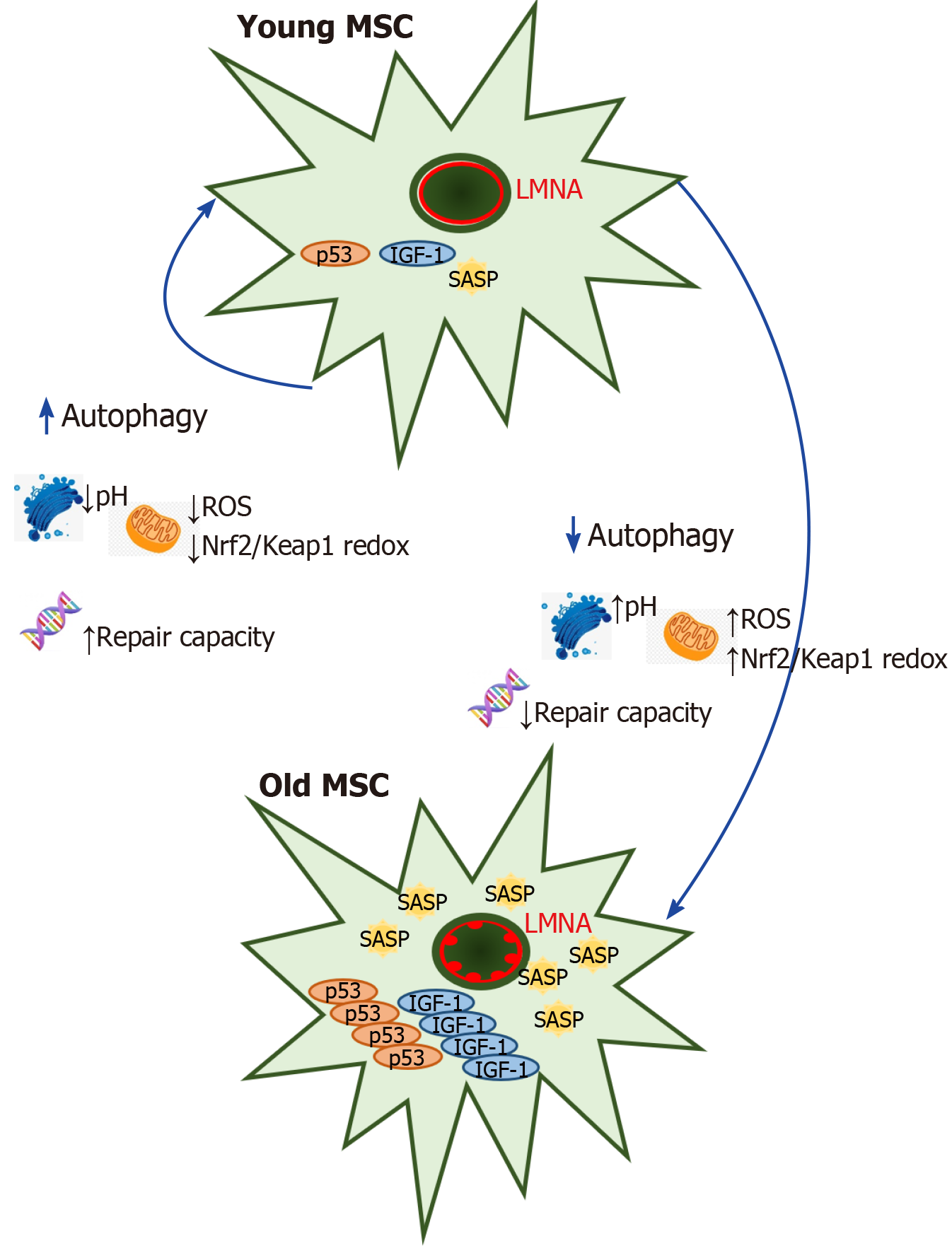©The Author(s) 2019.
World J Stem Cells. Jun 26, 2019; 11(6): 337-346
Published online Jun 26, 2019. doi: 10.4252/wjsc.v11.i6.337
Published online Jun 26, 2019. doi: 10.4252/wjsc.v11.i6.337
Figure 1 Effect of aging on self-renewal, differentiation and immunogenic potential from mesenchymal stem cells.
A, B: Stem cell properties of mesenchymal stem cells (MSCs) are limited by age donor (A), and their long-term in vitro culture (B); C: Some new agents can ameliorate the effect of cellular senescence on the therapeutic capacity of MSCs; D: Treatment with senolytic drugs affects the behaviour of MSCs. MSCs: Mesenchymal stem cells; LPA: Lysophosphatidic acid.
Figure 2 Autophagy influences senescence in mesenchymal stem cells.
The self-renewal potential of young mesenchymal stem cells (MSCs) is influenced by their autophagy capacity to regulate the good levels of oncogenic factors like p53 and inflammatory signals like senescence-associated secretory phenotype and IGF-1, which produces overexpression of reactive oxygen species in the mitochondria, accumulation of mutations at DNA levels and acidification in the lisosomal apparatus together with an increase of LMNA in the nucleus. When autophagy is downregulated by the pathologic process, young MSCs become old MSCs in an accelerated way, losing their self-renewal capacity. MSC: Mesenchymal stem cell; ROS: Reactive oxygen species.
- Citation: Fafián-Labora JA, Morente-López M, Arufe MC. Effect of aging on behaviour of mesenchymal stem cells. World J Stem Cells 2019; 11(6): 337-346
- URL: https://www.wjgnet.com/1948-0210/full/v11/i6/337.htm
- DOI: https://dx.doi.org/10.4252/wjsc.v11.i6.337














